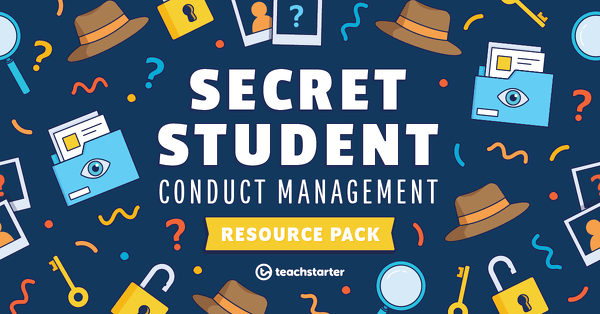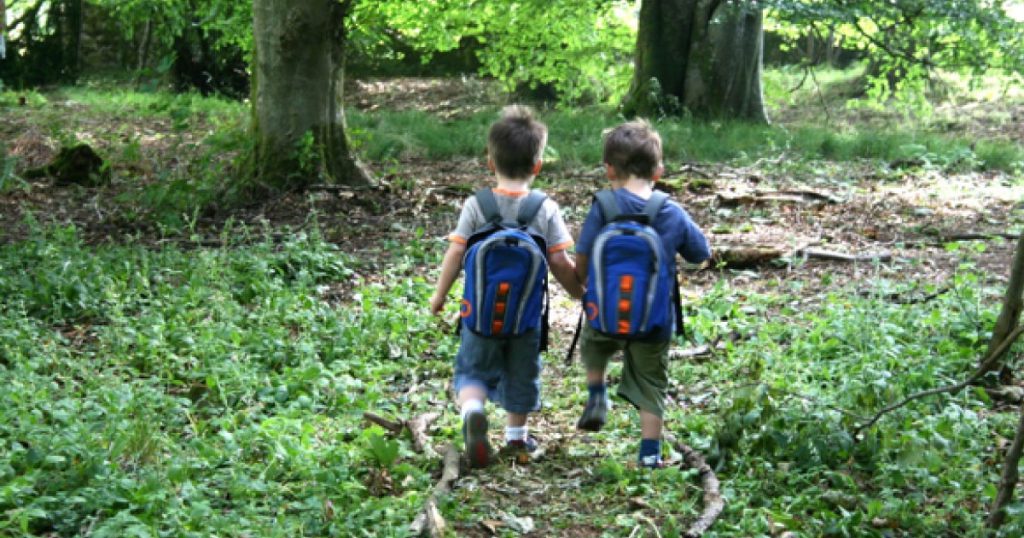Ah, the dreaded teacher interview. When you’re looking for your first teaching job or seeking a new teaching position, an interview is part of the process that you just can’t avoid. The good news? You scored an interview! That means your teaching resume caught someone’s eye, and you’ve got a chance to get the gig!
Now’s your chance to wow the interview panel with smart answers to those teaching interview questions they’re bound to throw at you. It’s a good thing we’ve got some of the most common teaching interview questions for you, so you know how to prep, huh?
Common Teaching Interview Questions
Read on for teaching interview questions you’ll likely be asked, plus questions you should ask during the teacher interview process to make a good impression.
What Is Your Experience and Background?
This is a common teaching interview question, and it’s your chance to really talk about what makes you the perfect fit for this district. Shayna Pond is president of Model Teaching, a teacher professional development and training company, and she reminds teachers that the interview panel already has your resume. While it’s wise to talk about the experiences on the resume, giving the panel a brief overview, Pond says, is a chance to talk about “how your experience and background fit specifically into the role, school, and/or community for which you are applying.”
Are you a graduate with intimate knowledge of the district? Do you come from a similar community and have a real understanding of the community of kids you’re going to serve? Now is the time to talk about that.
What Is Your Teaching Philosophy?
A teaching philosophy is basically your values and beliefs as they relate to teaching and being in the classroom. When interviewers ask you to share your teaching philosophy, they’re looking for you to explain your why, says Dr. Leena Baskhi, a lecturer in the education departments at the University of California Berkeley and Claremont Graduate University’s well-known teacher education program. The answer to this question should be backed up throughout the interview as you talk about your experiences and your ideas, so make sure you’ve given this question a lot of thought!
Walk Us Through an Example Lesson.
Part of the teacher interview process is determining a teacher’s competency in teaching their intended grade level and subject matter. So expect to be asked to walk through an example lesson and talk about ways you’ll differentiate instruction for all types of learning, Bakshi says. You may even be asked to do a demonstration lesson.
“When you are planning out your lesson, think about how you can incorporate inquiry and student-centered instruction as much as possible,” Bakshi advises. “Look for ways to involve your interviewing team and engage them as participants. Don’t just rely on lectures!”
Remember: Administrators look for dynamic educators who can center students in instruction!
What Are Your Strengths?
This is a common question in any interview, and it pops up in teacher interviews too, so Pond advises teachers to practice their answers.
Strengths should focus on students and student learning. “Best answers are where you can explicitly describe your strength and back it up with data,” Pond notes. “For example, if the job position is for a state-tested ELA role, you might say, ‘Last year I worked with a group of students whose reading scores increased by an entire grade level in the ___ weeks/months I worked with them. I learned some strategies that really resonated with my students. I learned that I have a strength for adapting lessons to fit the needs of each of my students.’”
What Are Your Weaknesses?
Of course, being asked your weaknesses always feels like a bit of a trick question in an interview. Do they really want to hear something bad about you? This is one you can flip on its head by talking about something you are working to improve upon or something you have safeguards in place to help you with, Pond advises.
In other words, “Avoid topics important for student success in the classroom, like behavior management, lesson delivery, or student engagement,” Pond suggests. “Instead, focus on issues that show you are capable of seeking help and support or improvement.”
One example? Maybe you struggle with time management, but you’ve learned that you do better when you pre-plan activities around a timer. Mentioning these two things in tandem will show that you’re willing to find ways to improve, Pond says. It also shows you’re reflective enough to respond with a true weakness.
What Is Your Behavior Management Plan?
Before hiring you to teach a classroom full of students, interviewers are bound to ask about your behavior management plans. They’ll want to see that you can implement discipline measures in a way that’s fair and consistent, as well as maintaining an inclusive culture. Likewise, Bakshi notes, they’re going to want to hear that YOU feel comfortable handling discipline issues and maintaining a classroom where students are treated equally.
“Administrators want to know how you will be able to lead your classroom and handle behavioral issues without taxing the school office with referrals,” Bakshi says. “Therefore, teachers should avoid saying that they would send a student out of the classroom and expel students from learning.”
What Is Your Classroom Management Plan?
Yes, these things are related, but they’re not the same. Classroom management strategies should include how you’ll communicate expectations to your students, how you’ll develop routines, how you’ll handle transitions, how you grab students’ attention, and a whole lot more! Plan to get as specific as possible on these topics — check out this free classroom management booster pack to get you started!
How Do You Incorporate Technology Into Your Teaching?
Especially after a year and a half in which many school districts had teachers teaching virtually — either full-time or in a hybrid capacity, Bakshi — who heads up non-profit STEM4Real when she’s not teaching herself — says you can expect your potential administrators will want to know your comfort level and experience with tech in the classroom.
What Is Your Take on Critical Race Theory?
This is a hot-button issue in education right now, and it might well come up in a teaching interview. Bakshi’s advice? Do your research and be up-to-date on CRT in case you are asked a question about it.
How Do You Know That a Student Is Learning? or How Do You Measure Student Learning?
Successful teachers have clear plans for assessing students during lessons and at the ends of them, and they can clearly articulate that plan. Be ready to be specific and explain what you would look for in a lesson, how you will collect data, and how you will determine whether students show you what they’ve learned, Pond says.
You may want to mention plans to use specific resources, such as exit tickets, to assess the success of your lessons and your own focus on honing lessons to show you are self-reflective.
Why Did You Apply to This School?
Let’s face it: You may have applied to any and every job out there because you just want to get into a classroom, any classroom, and teach kids! That’s not what administrators or other teachers want to hear — they want to know you want to be at their particular school. This is where doing your homework on a district comes into play. Identify things that excite you — maybe it’s that after-school robotics club or the fact that you saw they’ve incorporated sensory paths into the hallways. Whatever it is, this is the time to flatter the school folks a bit on the things they’re doing well.
Why Did You Choose to Get Into Teaching?
You are going to want to be as enthusiastic as possible about teaching when answering this question. Was teaching a calling for you? Then tell them that. Was there a teacher in your life who made you fall in love with the profession? Talk about them! Teaching is a profession full of people who truly love what they do, and your interview panel is going to want to know you are one of them.
How Will You Differentiate Instruction?
If there’s one thing Pond always likes to hear, it’s teachers who believe that every student can be supported and can thrive. “Being able to communicate how, specifically, you might differentiate instruction for students shows that you know students might have different needs but cannot meet lesson objectives,” she says. “We want to hear how you can identify the potential in every student and find ways of improving them.”
What Teachers Should Ask in an Interview
So, you got through all the questions thrown at you during your teaching interview. Now what? When you’re given a chance to ask questions, it will make a good impression to have a few handy. Some of them should be specific to the district — make sure you’ve done your homework! For example, Pond suggests mentioning something that interests you about the school. She offers this as a prime example: “I was really drawn to your robust STEM after-school program. It seems successful; what is the school doing to help promote its success? It would be great to be a part of; how are teachers selected to support after school?”
This not only shows that you’ve taken the time to do your homework but that you’re pursuing the district for specific reasons and truly want to make this your new teaching home. “Teaching is such a personal and community-focused profession, and administrators want to feel confident that teachers will positively contribute to their community,” Pond points out. “Interviewers want to know that you have come to them because you want a job specifically with them and their school.
But here are a few other questions that panelists like to hear from potential new teachers:
- What does collaboration look like in your school?
- Can you tell me a little bit about family engagement in the district?
- What measures does the district take to address equity and ensure students all have access to high-quality instruction?
One More Thing
Before you head off to prep for that interview, there’s one more thing you need to know: It’s OK not to have all the answers, especially as a first-year teacher!
“Good administrators understand that great teachers can be developed, so if you are a new teacher up against more veteran teachers, that doesn’t mean you won’t get the role,” Pond says. “Administrators care about enthusiasm, love for education and students, and a willingness to take feedback and constantly improve. Your humility combined with a genuine appreciation for education can take you far in an interview!”
For more tips on landing a new teaching job, check out our tips from veteran teachers who share how they landed their teaching gigs!
Are you a first-year teacher? Did you know student- and first-year teachers get 50% off their Teach Starter subscription? Sign up now and save!
Banner image via shutterstock/fizkes
The post Teaching Interview Questions You Might Be Asked + Questions Interviewees Should Ask appeared first on Teach Starter.







